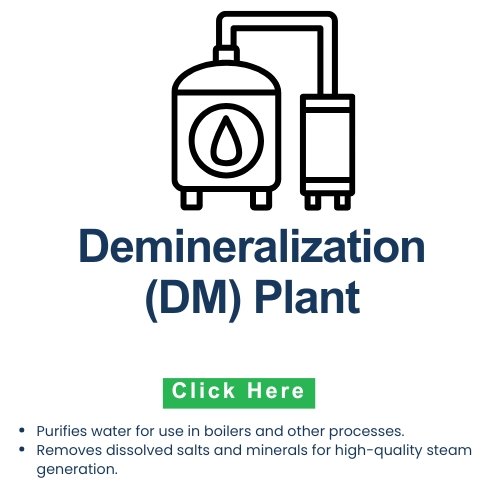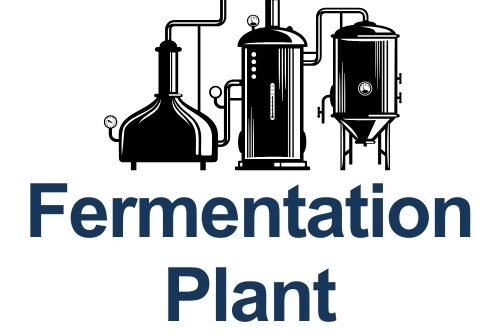This article explores the importance, working process, and benefits of a DM Plant in distillery operations, ensuring that your ethanol production facility functions at peak efficiency.
Latest innovations that enhance efficiency in distilleries. One of the most crucial systems for any distillery is the DM Plant (De-Mineralization Plant), which plays a key role in supplying high-purity water for boiler feed and other processes. Without a proper DM Plant in distillery, impurities in water can cause scaling, corrosion, and reduced efficiency, leading to higher operational costs and potential damage to expensive equipment.
For more details on the importance of demineralized water in industrial applications, you can check out WaterWorld for global insights on water treatment solutions.
What is a DM Plant?
DM Plant (De-Mineralization Plant) is an advanced water treatment system that removes dissolved salts, minerals, and other impurities through an ion exchange process. It ensures that the water used in distilleries, especially as boiler feed water, is free from contaminants that can cause operational inefficiencies.
Why is this important? Because even minor impurities in boiler feed water can result in scaling, corrosion, and poor steam quality, affecting both equipment life and ethanol production efficiency.

Why is a DM Plant Important in a Distillery?
In the distillery plant serves multiple functions, ensuring a reliable and efficient production process. Here’s why every distillery needs a DM Plant:
Prevention of Scaling and Corrosion
- Raw water contains dissolved salts like calcium and magnesium, which cause scaling in boilers and pipelines.
- DM Plant removes these minerals, preventing damage and reducing maintenance costs.
Improved Boiler Efficiency
- Boilers require high-purity water to generate steam efficiently.
- DM Plant eliminates dissolved solids, ensuring better heat transfer and lower fuel consumption.
Compliance with Industry Standards
- Distilleries must meet strict water quality regulations to ensure smooth operations.
- DM Plant ensures that feed water meets required purity levels, avoiding compliance issues.
Enhances Fermentation & Distillation Process
- The presence of impurities in water can impact the fermentation and distillation of ethanol.
- Using demineralized water helps maintain consistent ethanol quality and reduces contamination risks.
Working Process of a DM Plant in Distillery
This works through a multi-stage ion exchange process, ensuring that all unwanted minerals are removed. The main steps include:
- Cation Exchange – Removes positively charged ions like calcium (Ca²⁺), magnesium (Mg²⁺), and sodium (Na⁺) using strong acid cation (SAC) resin.
- Anion Exchange – Eliminates negatively charged ions like chloride (Cl⁻), sulfate (SO₄²⁻), and nitrate (NO₃⁻) using strong base anion (SBA) resin.
- Mixed Bed Polishing – In some setups, an additional mixed-bed unit is used for ultra-pure water purification.
- Regeneration Cycle – The resins are periodically regenerated using acid and alkali solutions to maintain performance.
- Final Storage & Distribution – The purified, demineralized water is stored in dedicated tanks before being supplied for boiler feed or other applications.
Benefits of Using a DM Plant for Boiler Feed Water in Distillery
DM Plant in distillery significantly improves operational efficiency, ensuring consistent water purity. Here’s how it benefits ethanol production:
Prevents Boiler Scaling & Corrosion – Eliminates mineral deposits, ensuring longer boiler life.
Ensures High-Purity Water – Removes 99% of dissolved salts, improving steam generation efficiency.
Reduces Energy Consumption – Pure water improves heat transfer, lowering fuel and electricity costs.
Enhances Equipment Lifespan – Protects boilers, heat exchangers, and pipelines from chemical damage.
Supports Sustainable Operations – Reduces water wastage and enhances environment-friendly distillery processes.
For more insights on sustainable distillery operations, check out The Institute of Brewing & Distilling, which offers best practices and research on distillery water treatment
Conclusion: Why Every Distillery Needs a DM Plant
This is essential investment for ensuring high-quality boiler feed water, improving ethanol production efficiency, and reducing maintenance costs. With its ability to remove dissolved impurities, a DM Plant safeguards expensive equipment, enhances sustainability, and ensures regulatory compliance.
Insights into the latest water treatment solutions for distilleries. Stay connected with us for more updates on sustainable ethanol production and advanced purification technologies!
Read More:




